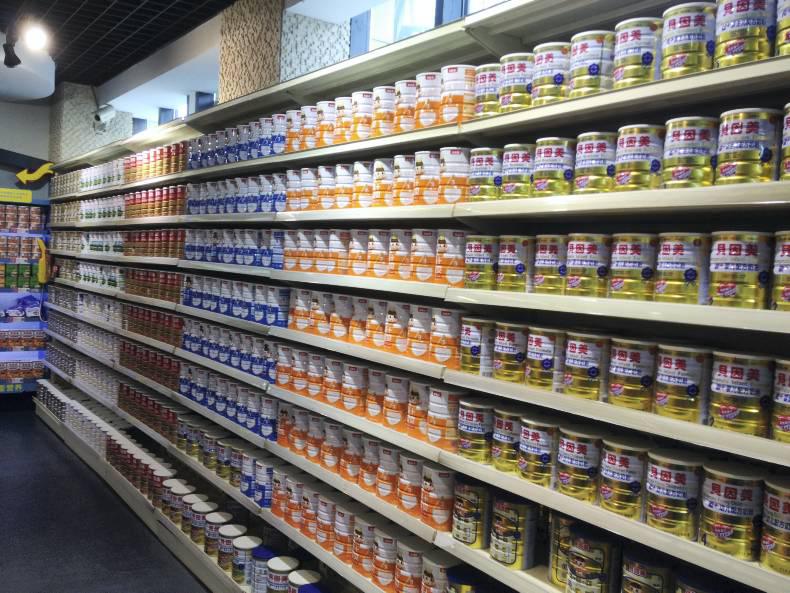There were an estimated 17,000 cans of counterfeit infant formula involved and authorities are still searching for thousands of them.
The Chinese commission has said three vendors destroyed 3,300 cans, police confiscated 5,000 and one vendor sold 3,600 cans.
The suspects are accused of making nearly 2m yuan, which is the equivalent to €270,000.
Six of the suspects are being questioned and have been referred for prosecution, while another suspect is still at large.
“It’s a criminal case where cheap baby formulas were illegally repackaged and sold as high-priced brand name products for profit margins,” Teng Jiacai, deputy head of China’s food safety commission, told state media. He added that the selling of the counterfeit milk powder was a “violation of intellectual property rights”.
Although the products were found to be within the national safety standards, Teng said the agency would now strengthen regulation in the industry.
Irish suppliers
The fake cans were sold under forged brands for Beingmate and Similac, which belongs to Abbott.
Several Irish co-ops supply Abbott, while Kerry has links with Beingmate. Ireland alone supplies 10% of the world’s infant formula.
A previous scandal rocked the Chinese dairy sector in 2008, when rogue manufacturers added poisonous melamine to infant formula to cheat on its protein content.
In 2013, rumours of botulism contamination in infant formula imported into China were proven wrong and are now at the centre of a legal dispute between Danone and Fonterra.
In recent years, China’s most affluent consumers have turned to branded imported products in search of food safety, and the governement has stepped in to impose strict controls on the industry.
Read more
Chinese willing to pay more for quality dairy products – Kantar
Danone withdraws its Karicare brand from China
‘2,000 to 3,000 cows is a good size for a farm’ – Chinese dairy consultant
There were an estimated 17,000 cans of counterfeit infant formula involved and authorities are still searching for thousands of them.
The Chinese commission has said three vendors destroyed 3,300 cans, police confiscated 5,000 and one vendor sold 3,600 cans.
The suspects are accused of making nearly 2m yuan, which is the equivalent to €270,000.
Six of the suspects are being questioned and have been referred for prosecution, while another suspect is still at large.
“It’s a criminal case where cheap baby formulas were illegally repackaged and sold as high-priced brand name products for profit margins,” Teng Jiacai, deputy head of China’s food safety commission, told state media. He added that the selling of the counterfeit milk powder was a “violation of intellectual property rights”.
Although the products were found to be within the national safety standards, Teng said the agency would now strengthen regulation in the industry.
Irish suppliers
The fake cans were sold under forged brands for Beingmate and Similac, which belongs to Abbott.
Several Irish co-ops supply Abbott, while Kerry has links with Beingmate. Ireland alone supplies 10% of the world’s infant formula.
A previous scandal rocked the Chinese dairy sector in 2008, when rogue manufacturers added poisonous melamine to infant formula to cheat on its protein content.
In 2013, rumours of botulism contamination in infant formula imported into China were proven wrong and are now at the centre of a legal dispute between Danone and Fonterra.
In recent years, China’s most affluent consumers have turned to branded imported products in search of food safety, and the governement has stepped in to impose strict controls on the industry.
Read more
Chinese willing to pay more for quality dairy products – Kantar
Danone withdraws its Karicare brand from China
‘2,000 to 3,000 cows is a good size for a farm’ – Chinese dairy consultant





SHARING OPTIONS